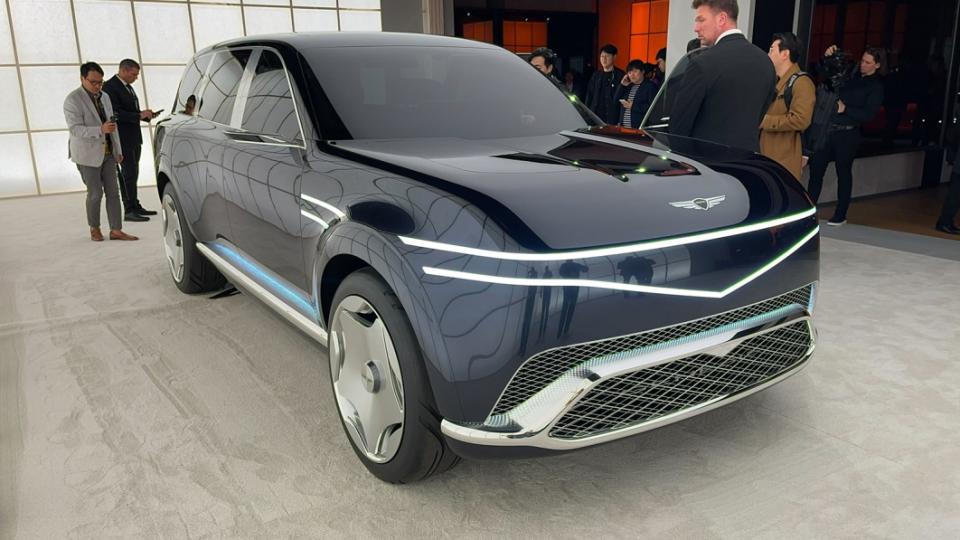Genesis Neolun concept reportedly becoming GV90 electric SUV

The Korean Car Blog has all kinds of info on what's happening at the top of the Genesis lineup in the next couple of years. The biggest news starts with the Neolun concept Genesis debuted at the New York Auto Show. That's going to turn into a GV90 flagship SUV in early 2026, all-electric, of course, since Genesis so far remains committed to new models being EV-only after 2025. TKCB says this will be the first vehicle to come out of the Hyundai Group's new plant in Ulsan, Korea dedicated to electric vehicles. We're told that Genesis successfully lobbied the mothership to move the GV90 upscale from its original luxury segment, so now the SUV's being benchmarked against the Bentley Bentayga, Range Rover and Rolls-Royce Cullinan. The Korean brand spent much of last year putting its sights on such super-luxe rides, from rumors about a production version of the Genesis X Convertible concept to its One of One program launch in Dubai.
In New York, we made note of Neolun features like the coach doors, the large, flexible infotainment screen that could be unfurled from the instrument panel, and swiveling front seats. Genesis hinted that some of the Neolun's intriguing design elements could make production, TKCB believes coach doors will be one of them. Supposedly, a few months after the launch of the standard GV90 in the U.S. around June 2026, Genesis will produce a limited-edition trim with coach doors and other exclusive touches.
The doors are reportedly possible thanks to the Hyundai's new electric vehicle platform called "eM" and its new electrical architecture and modular motors. This will eventually replace the e-GMP platform current Hyundai Group products are built on and enable vehicle features such as "a pop-up display, a swivel seat in the first row, a long-sliding seat in the second row, a built-in air purifier, [Level 3+] autonomous driving, Remote Smart Parking Assist 3 (RSPA3)," OTA updates for vehicle control modules, and AI-supported real-time battery diagnostics. Hyundai brought some battery development in-house, the eM architecture could be the first beneficiary of that by utilizing a lithium-iron-phosphate chemistry in cell-to-pack (CtP) battery technology. Instead of today's method of combining cells into modules and modules into packs, CtP skips the modules to "directly bond batteries to the [pack housing's] cooling plate." The arrangement uses fewer parts and saves space, the extra space potentially turned into weight savings or used for more cells.

 Yahoo Autos
Yahoo Autos